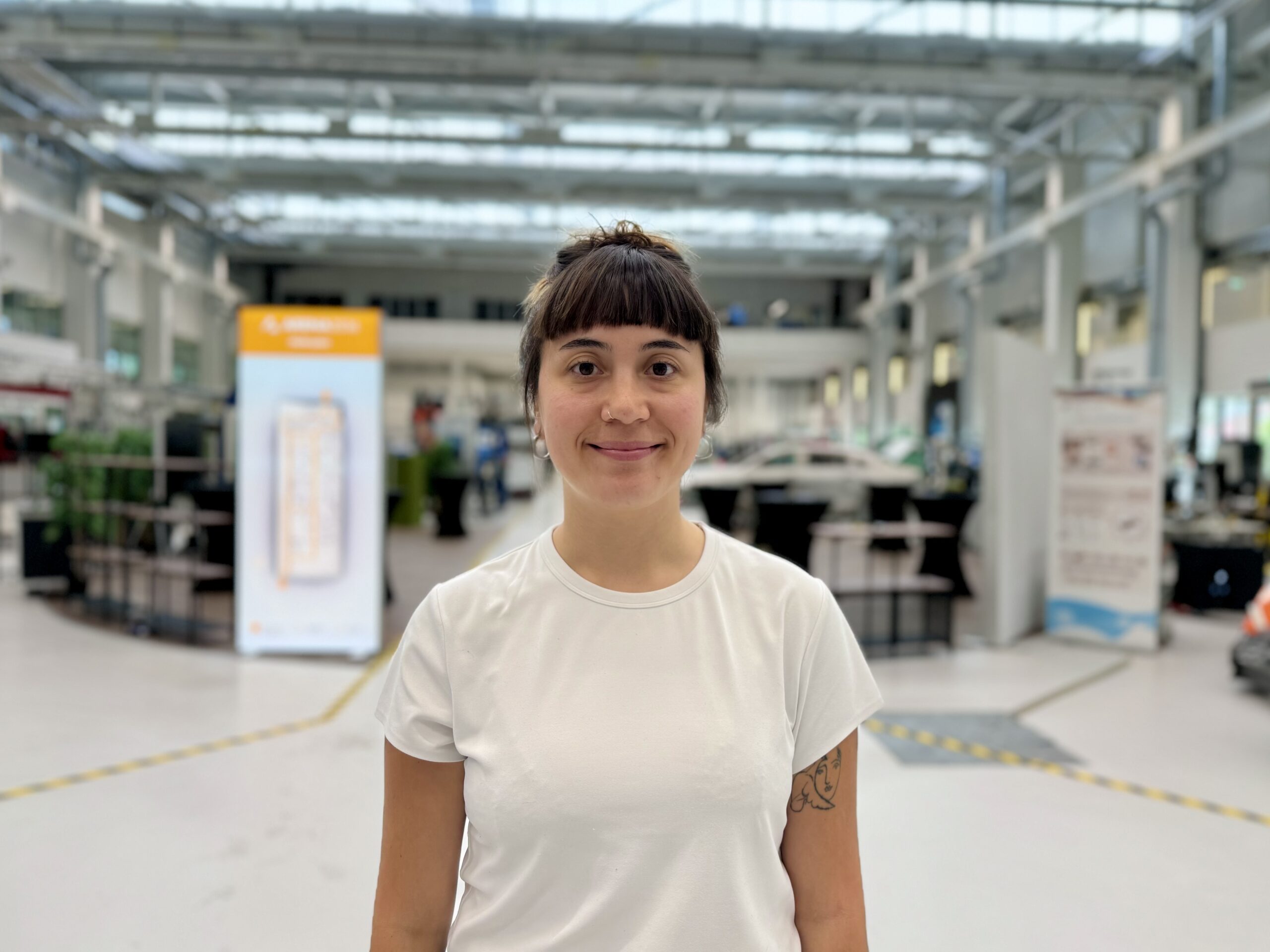WOMEN IN TECH
24.06.2024 | naise.eu
BREAKING BARRIERS AND SHAPING THE FUTURE

IS THIS A WORRIING STATISTICS?
In the ever-evolving landscape of technology and digital innovation, the potential for transformative progress is immense. However, one of the greatest untapped resources remains significantly underrepresented: women. This disparity is particularly stark in Germany, where only 16.8% of tech specialists are women. Globally, the numbers reveal an even broader gender gap, with the ratio of women to men in the internet industry standing at 1:3, and in Europe, as high as 1:5. These figures highlight a pressing issue that could entrench age-old gender stereotypes in one of the most innovative and progressive sectors.
The impact of this gender imbalance extends beyond mere representation. According to a McKinsey study, increasing the proportion of women in technology companies to 45% by 2027 could boost Europe’s GDP by up to 600 billion euros. Currently, only 22% of tech jobs in the EU are held by women, a figure that drops even further when examining the pipeline from education to employment. Despite girls performing on par with boys in primary and secondary math and computer science, there is a dramatic decline in the number of women pursuing STEM disciplines at the university level and subsequently entering tech careers.
Addressing this disparity is crucial not only for equity but also for economic growth and innovation. To achieve this, companies must implement better promotion strategies, more flexible working models, and robust support systems, such as childcare. Furthermore, retaining female talent should be a key performance indicator for managerial evaluations. The underrepresentation of women in tech leads to significant disadvantages for employees, stifles innovation, and affects society at large.

INTERVIEW
Despite these challenges, there are women who break through these barriers, shaping the tech industry with their expertise and perseverance. One such individual is Selin Sevim, a colleague from our tech department specializing in Artificial Intelligence. In the following interview, Selin shares her journey, the hurdles she has faced, and her insights on how the tech industry can evolve to become more inclusive and diverse. Her story is a testament to the resilience and potential that women bring to the field of technology.
Can you share your journey into the field of Artificial Intelligence/IT and how you became interested in it?
I have followed a rather unconventional journey to find my way into the field of Artificial Intelligence. I began my career as an architect, but my interests never aligned with conventional architecture. Even while working in the design field, I specialized as a computational designer. Despite this specialization, I felt a lack of fulfillment. This led me to discover the ITECH Master’s program in Germany, which focuses on the intersection of robotic fabrication and computational design. It was here that my journey into robotics and AI truly began. I took a Machine Learning course in my program, which introduced me to this exciting field. For my thesis, my partners and I focused on Deep Reinforcement Learning and more specifically exploring deep learning, human-robot collaboration, and robotic fabrication.
As a woman pursuing a career in AI and IT, I have encountered a few challenges, both personal and professional. One of the primary challenges has been navigating a field where female representation is still relatively low. This sometimes led to feelings of isolation or the need to prove my capabilities more. However, these challenges have also been opportunities for growth. They have made me more resilient, determined, and proactive. Even though I am the only woman on my developer core team, I have felt supported and valued, and my contributions are recognized just as much as those of my colleagues. The inclusive environment at NAiSE has allowed me to thrive and grow in my career, starting as an AI working student and progressing to a full-time position.
Yes, there are several barriers and biases that women commonly encounter in the tech industry. One common barrier is the gender imbalance, which can create an environment where women feel underrepresented. This often leads to a lack of female role models and mentors, making it harder for women to envision their own success in the field. Additionally, there are implicit biases and stereotypes that can affect perceptions of women’s abilities and contributions. This can also lead to fewer opportunities for advancement or being overlooked for leadership roles. Despite these challenges, many companies, including NAiSE, are increasingly recognizing the importance of diversity and are actively working to create more inclusive environments.
The underrepresentation of women in AI/IT has several significant impacts on the field as a whole. Firstly, it limits the diversity of perspectives and ideas that are crucial for innovation. AI and IT solutions benefit from a variety of viewpoints to address the needs of diverse users and to minimize biases in algorithms and technologies. I recently read an article from UN Women titled ‘Artificial Intelligence and Gender Equality.’ It states that ‘Artificial intelligence mirrors the biases present in our society, which manifest in the AI training data,’ as noted by Doğuç. The same article also quotes Sangwa, who mentioned that AI is mostly developed by men and trained on datasets primarily based on men. This can lead to inaccuracies when women use AI-powered systems, such as those for diagnosing illnesses, because the AI may not recognize symptoms that present differently in women. Diverse teams are often more effective at problem-solving and creativity. Without women, the field misses out on unique contributions.
I think AI/IT filed needs more women representing leadership roles that I also would believe that increase the access to this field. According to the World Economic Forum’s 2023 report, women comprise only 29 percent of all workers in science, technology, engineering, and math (STEM). While more women are graduating and entering STEM professions than ever before, they are often concentrated in entry-level positions and are less likely to attain leadership roles. I find reading success stories and articles featuring diverse women role models in the tech field incredibly inspirational. I believe that effectively marketing jobs to specifically appeal women plays a crucial role in this effort. I see immense power in using social media and marketing to highlight the successes of women, making their achievements more visible to inspire both women and men to recognize and appreciate women’s capabilities in this field.
I think my first introduction to ARENA2036 was the most important moment in my career journey which led me to NAiSE where I feel supported and valued in the beginning of my career in the field of AI.
I am optimistic about the representation of women in the tech field. While we are increasingly recognizing the valuable contributions of women, there is still much progress to be made. As a woman in our company and in this field, I feel a strong responsibility to set an example for our future female colleagues. It’s crucial that we promote support, inclusivity, and growth.
I think believing your capabilities both soft and hard skills are important, surely tech industry can be intimidating, but I always try to remind myself my unique perspectives and skills are valuable, and I believe it creates diverse and inclusive contribution to our team in NAiSE. Remembering that diversity in tech is crucial in innovation. By pursuing your passion and breaking barriers, you’re not only advancing your own career but also contributing to a more inclusive and innovative industry. And of course, staying updated on the latest advancements in AI and tech through courses, workshops, and online resources. Embrace opportunities to learn and grow.